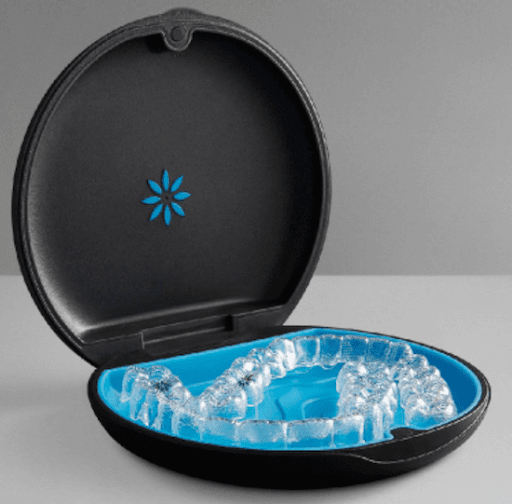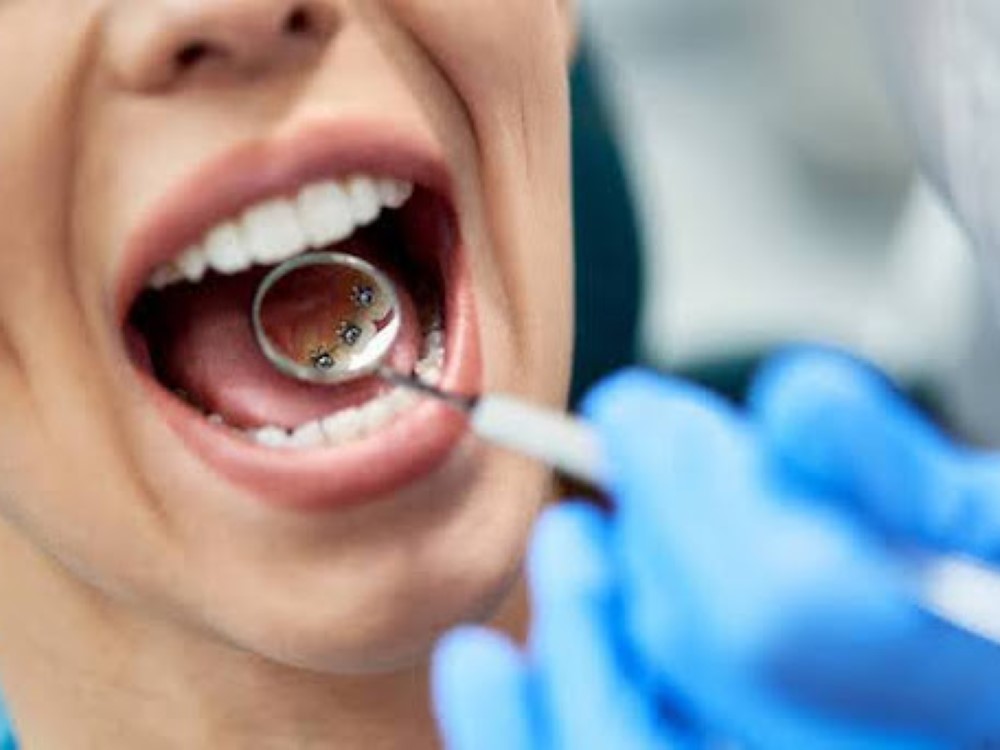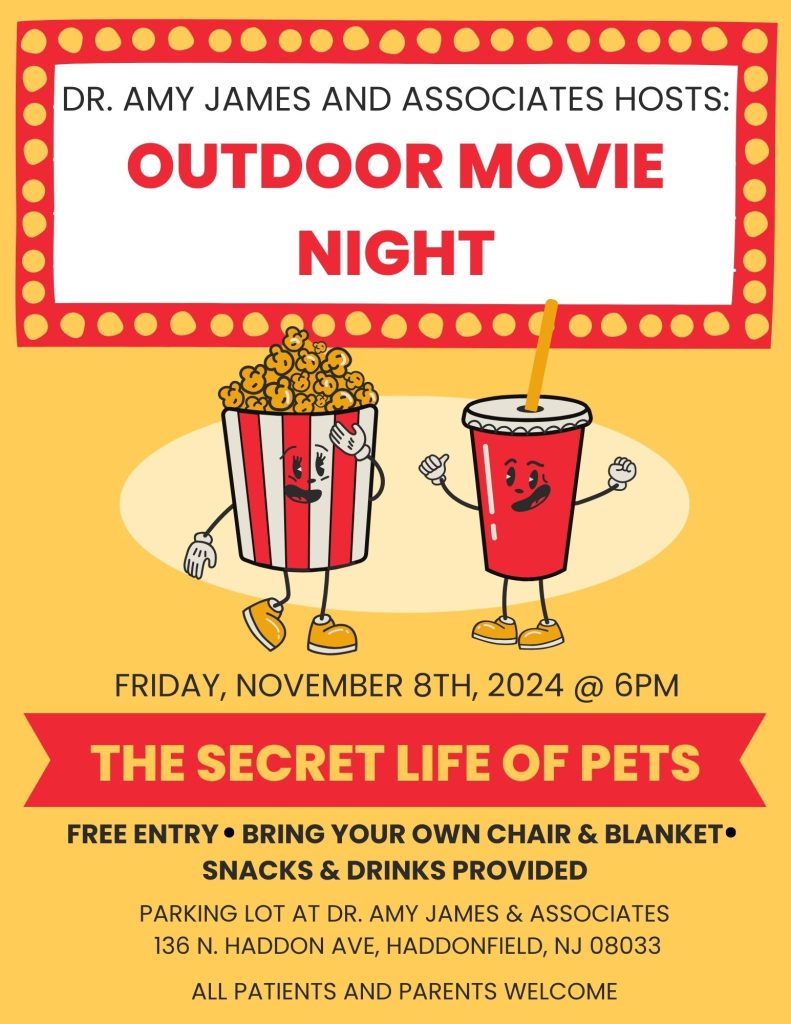Welcome to Dr. Amy James & Associates
Top Orthodontist New Jersey - Haddonfield
1000's
Happy Patients Treated Orthodontist New Jersey
200+
5-Star Reviews on Google, Yelp, and Facebook
25+ years
Experience Treating New Jersey Patients to the Highest Standard
What We Do Differently At Dr. Amy James & Associates
Affordable Invisalign / Spark aligners and Braces In Haddonfield New Jersey
At Dr. Amy James & Associates, we believe everyone deserves a beautiful smile without straining their budget. That’s why we provide interest-free, affordable monthly payment plans.
Whether you’re considering braces or Invisalign / Spark aligners, our flexible financing options ensure that exceptional orthodontic care is within reach for families in Haddonfield, New Jersey.
We work with most insurance providers and are committed to helping you make the most of your benefits. Our goal is to make orthodontic treatment affordable without compromising quality.
Want to meet with your Orthodontist New Jersey to get a customized plan that will fit your needs? Click below to schedule your complimentary consultation today!

An Orthodontist New Jersey Office You'll Look Forward To Visiting
At Dr. Amy James & Associates, we make your orthodontic visits something to look forward to, not avoid. Led by Dr. Amy James, a proud mother of two, and our warm, personable team, we ensure that every patient feels welcomed and valued. Our mission is to create an environment where both kids and adults are excited about their orthodontic journey.
By combining top-notch care with a cozy, welcoming atmosphere, Dr. Amy James, your orthodontist New Jersey, is transforming the way people experience orthodontic care.
Our Team Loves Putting Smiles On Faces
Although we hold ourselves to the highest standard of excellence in orthodontic care, we still have a fun side that helps us create an environment we love.
For many years we have put new smiles on our patient’s faces, both in our attitude and in our treatments.
Click below to view all the smiles our orthodontist New Jersey team has created, and then schedule a complimentary consultation to get your new smile as well!

What We Do At Dr. Amy James & Associates
As the top orthodontist New Jersey residents trust, our highest priority is to provide you with the highest quality orthodontic care in a clean and friendly environment. We utilize the latest orthodontic technology to perfect your smile, such as hidden braces on the inside, cosmetic ceramic braces and removable clear aligners. Our 3D x-rays and imaging provide the most thorough diagnosis for the most effective and appropriate treatment plan.
We recognize that every patient has different needs, and we pride ourselves in the courteous service we deliver to each person who walks through our doors. Whether you are an adult, adolescent or child, we will promise to always give you our personal best to ensure you have a gratifying experience.
At Dr. Amy James and Associates, orthodontist New Jersey, we believe in providing top-quality care to our community. We are proud to offer our orthodontic services to patients throughout our local community. However, we are also able to provide services for patients from any other state who are willing to make the drive for the outstanding service!

Invisalign / Spark Aligners For Teens And Adults
Say goodbye to the days when metal braces were your only option for a straight, healthy smile.
Invisalign / Spark aligners now offer a convenient, wire-free solution to perfect your smile with ease.
For many patients, Invisalign / Spark aligners are just as effective as traditional braces, and in some instances, they might even be the ideal choice!
Click below to discover more about what to expect when choosing Invisalign / Spark aligners.

Hidden Lingual Braces
Achieve a stunning smile without the visibility of traditional braces! At Dr. Amy James and Associates Orthodontists, we offer lingual braces—a discreet, effective solution for adults seeking orthodontic treatment.
Unlike traditional braces, lingual braces are placed on the backside of your teeth, ensuring a more aesthetic appearance while delivering the same corrective benefits.
Perfect for boosting both oral health and confidence, lingual braces can fix issues like crooked, crowded, or misaligned teeth.

Traditional Braces
Traditional braces remain one of the most effective methods for correcting misaligned teeth, providing long-lasting results for both children and adults. There’s no age limit for orthodontic care, and modern braces are more comfortable and efficient than ever before.
If you’re dealing with crooked teeth, difficulty chewing, or simply want a more confident smile, it’s time to consider traditional braces. Schedule a consultation today and let us help you achieve a healthier, straighter future!

About Amy James, DMD, MS
- Top Orthodontist New Jersey
Dr. Amy James has resided in South Jersey for almost 30 years. She graduated cum laude from Dickinson College, and received her Doctorate in Dental Medicine from the University of Pennsylvania and her Orthodontic Certificate of Specialty and Master of Science in Oral Biology from Temple University.
After a one-year hospital-based general practice residency in San Francisco, a two-year commitment as a general dentist, and a two-year orthodontic residency, Dr. James opened her practice in both Haddonfield and the Long Beach Island area in New Jersey. She has become a top, trusted orthodontist New Jersey – Haddonfield, proudly serving the orthodontic needs of the local community.

About Mallory Vernacchio, DMD, MS
- Top Orthodontist New Jersey
Dr. Mallory Vernacchio grew up in Cranford, New Jersey and is very excited to be returning to her home state to join Dr. Amy James, serving as another top orthodontist New Jersey – Haddonfield. She graduated magna cum laude from Rowan University, with a bachelor’s degree in biology. She then received her Doctorate in Dental Medicine from Temple University, graduating summa cum laude. After Temple, she went on to obtain her Specialty Certificate in Orthodontics and Master of Science from Seton Hill University Center for Orthodontics.
Proudly Serving Patients From: Haddonfield, Voorhees, Marlton, Moorestown, Haddon Township, Haddon Heights, Audubon, Cherry Hill, Lawnside, Barrington & the Surrounding NJ Areas
Our Satisfied Patients
- Top Orthodontist New Jersey -
EXCELLENT
For High-Quality, Effective Orthodontics, You Can Count on Your Orthodontist New Jersey Team at Dr. Amy James & Associates!
For the safety of our patients and our team, the office is closed today, Monday, 1/26/2026. Stay warm and enjoy the snow! ❄️ ⛄️ ...
Working on the weekend! Loved sunny Arizona in January for continuing education learning and community at the Women in Orthodontics conference. Thank you @dunn_education! #orthodontist #ajsmiles #braces #hideyourbracesnotyoursmile #haddonfieldsmiles ...
📣 PSA: The American Association of Orthodontists recommends an orthodontic exam at Age 7. We offer complimentary consultations. Please schedule your children early to help prevent impaction of teeth, like the ones you see in this 3-D CT scan. Early intervention and prevention could reduce the risk of impacted teeth! 🦷
#ajsmiles #ajsmileshf #haddonfieldnj #cosmeticorthodontist #orthodontics
...
Surprise debonds are always the best! Congrats 🎉 @abby_kulak Enjoy your beautiful, brace-free smile! 😃 Enjoy not getting your homemade pies stuck in your braces anymore 😂 🥧
#ajsmiles #ajsmileshf #cosmeticorthodontist #haddonfieldnj #debondday #nomorebraces #weloveourpatients
...
💉 Dr. James is hosting a friends and family Botox event!
‼️Complimentary for the first 15 people to schedule.
📅 December 3, 2025
📍 136 N Haddon Avenue, Haddonfield, NJ 08033
📞 856-216-8009
🕰️ Appointments start at 5:30PM
Don’t hesitate, only 12 spots remaining, reserve yours now. 😃
#ajsmiles #ajsmileshf #costmeticorthodontics #haddonfieldnj #friendsandfamily #botox #event
...
🇺🇸 We are proud to give back to the people that allow us to have the freedom to do what we do! 🇺🇸 If you know of a veteran or active military member that may want to improve their Smile, please share this! We would be honored to service our military personnel and thank them for their sacrifices. ❤️ 🤍 💙
#ajsmileshf #ajsmiles #haddonfieldnj #cosmeticorthodontics #veteransupport #giveback #veteransday #honor #protect #serve #smile
...
Dr. Amy James: Rotary Club of Haddonfield President and Humanitarian
Dr. Amy James has been a dedicated member of the Rotary Club of Haddonfield for over 24 years, exemplifying the club’s motto of “Service Above Self” through her ongoing commitment to community and global service. Currently serving as the President of the Haddonfield Rotary, Dr. James is a respected leader, known for her passion for bringing positive change to those around her.
In addition to her role as president, Dr. James has been deeply involved in Rotoplast, a Rotary-sponsored program that provides critical cleft lip and palate surgeries to children in underserved areas around the world. Her dedication to these life-changing missions has taken her to several countries, where she has worked alongside medical professionals to bring hope and smiles to families in need.
As an orthodontist and owner of Dr. Amy James and Associates, Dr. James brings her professional skills and compassionate care to her practice and her service work alike. Her contributions to Rotary and Rotoplast underscore her commitment to improving lives locally and globally, and her leadership continues to inspire others to join in meaningful service.



